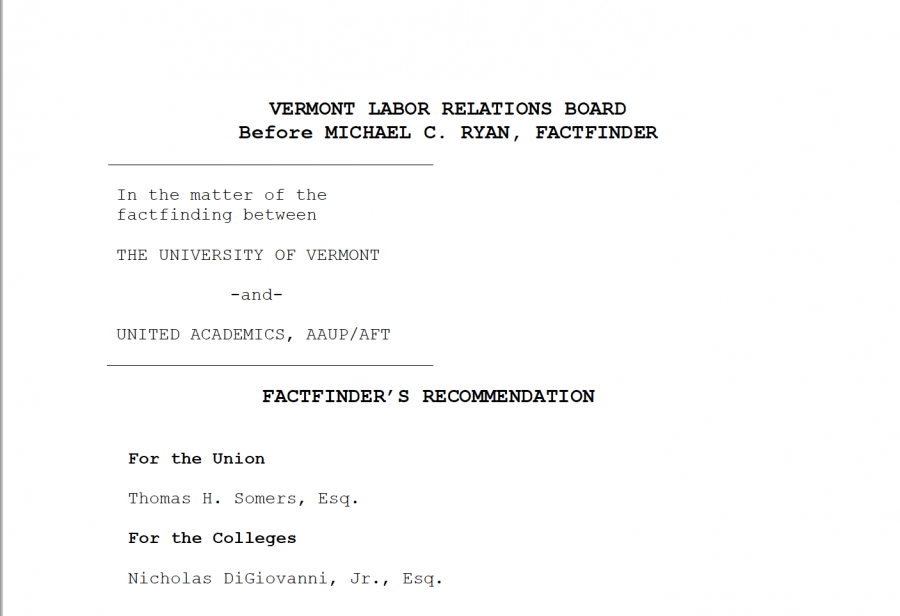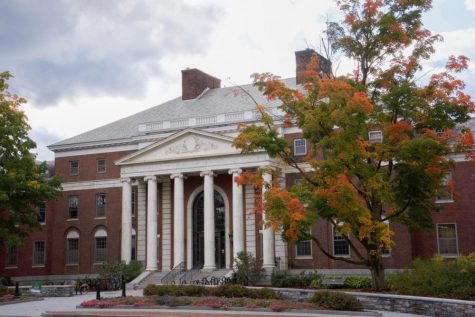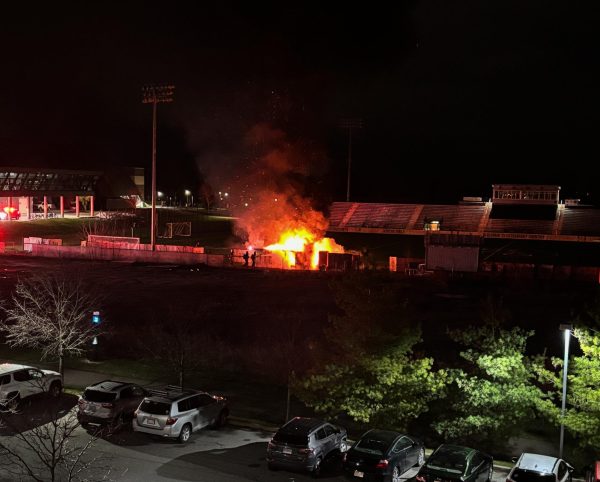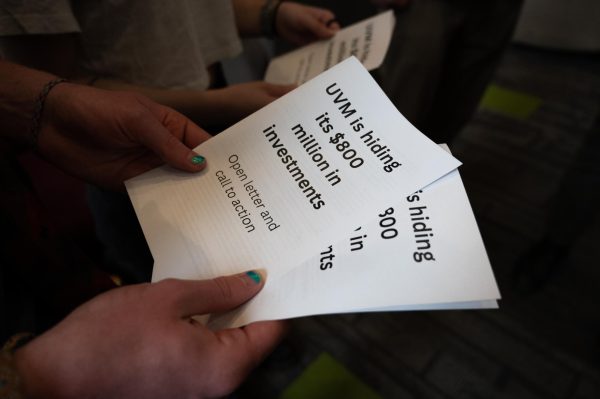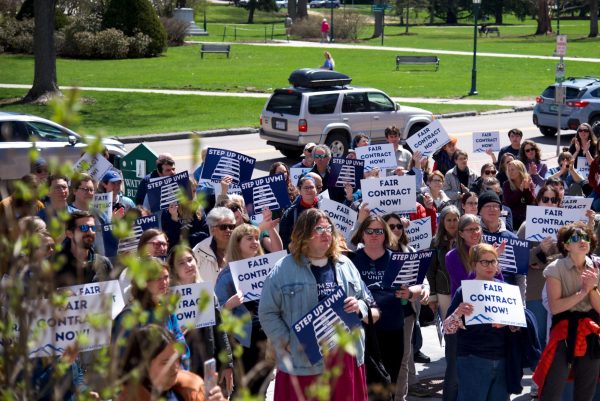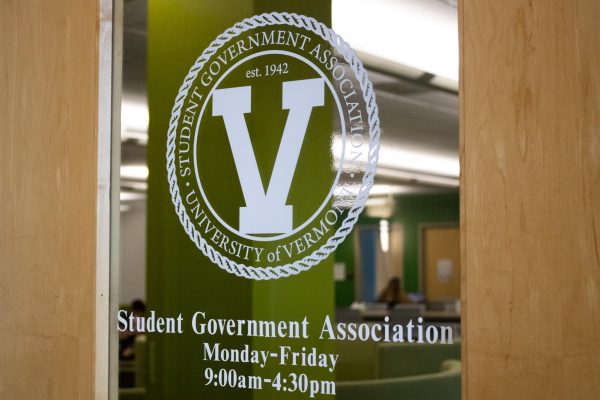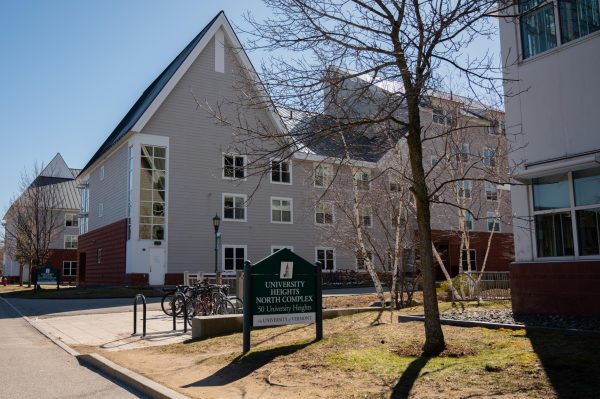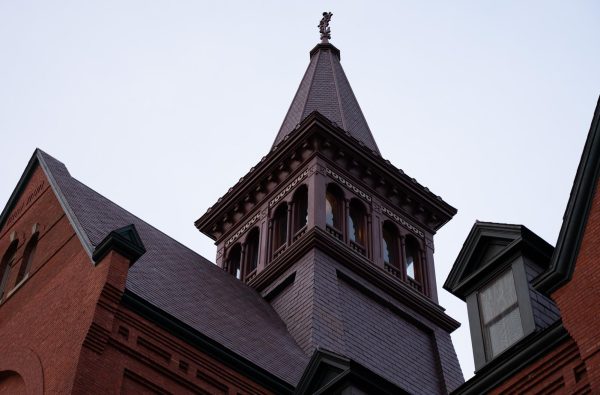Deal reached between United Academics and UVM
Cover of the fact finding report between UVM and UA.
June 3, 2018
After 15 months of negotiations, UVM and faculty union United Academics announced that they have reached an agreement on new contracts.
UA announced in a May 29 press release that the contract agreement had been approved by the union. The announcement came three weeks after both the University and the union were given the official results of a fact finding report conducted by the Vermont Labor Relations Board.
The report consisted of three components: a report and proposal from UVM, a report and proposal from UA and the official recommendation from state fact finder Michael Ryan.
Negotiations started in February 2017, according to a fact finding report from Ryan. UA’s previous contract with the University expired June 20, 2017, according to the report.
The agreement was approved by the board of trustees in this year’s triennial meeting that took place May 18-19.
In September 2017, UA President Tom Streeter announced in an email that the group had reached an “impasse,” or a standstill in negotiations, requiring an outside mediator.
In previous negotiations, third-party fact finding had not been necessary, the report stated.
The faculty will receive an 8.5 percent salary increase over the next three years according to the release. The increase will come as a 2.5 percent increase the first year and a 3 percent increase the remaining two years of the contract.
Initially, the University offered a 1 percent salary increase each year of the three year contract.
The University argued in their report to the fact finder that the heavy reliance on tuition for the funding of salaries puts UVM in a difficult spot, according to the fact finding report.
The University cited a low appropriation from the state and the highest tuition rates the market can bear as the reasoning behind their low proposal.
According to the University’s report, they conducted a survey among admitted students that decided to go to an institution other than UVM to prove that the University’s tuition was too high for many students.
“According to a survey of admitted applicants who chose instead to attend UMass, UNH, UConn and SUNY Binghamton, the primary reason was financial,” the report from UVM stated.
However, after further investigation, Ryan discovered that students did not choose to go to other schools mainly because of financials.
“It should be noted that, in the University’s survey of applicants who chose other schools, the most frequently cited reason for choosing against UVM was ‘academics/co-curriculars,’ followed closely by ‘location’ and ‘financial,’” Ryan said in his official recommendation.
Ryan agreed that the University had little room to maneuver for increased salaries, however he said that the University was in fine financial footing to offer a higher salary increase.
The Union initially argued for a four point five percent increase to their salaries each year for the next three years.
The Union pointed to upcoming capital investments that the University plans to make, such as a new basketball stadium and multipurpose complex, estimated to cost around $88 million, as signals that the University is doing very well financially, according to their report.
Ryan agreed with the union that UVM is in a good place financially, however there is “more to the story,” he said in his recommendation.
The University’s revenue source is growing more uncertain as more concerns are raised over the high price of tution and a nationwide downward trend of people heading to college, Ryan said.
“The University is almost in the position of a manufacturer with a product that has long been popular yet may start losing its market,” he said.
Ryan disagreed with the Union, saying that the $88 million investment into a new basketball court and multipurpose complex is necessary to keep the University competitive in the market, according to his recommendation.
The contract is meant to challenge university administrations all over the country to value their students and faculty more, Sarah Alexander, vice president of UA, said in the UA press release.
“Universities exist to serve the public good, and United Academics will continue to serve as an important protector of that role,” she said.
The University sees this new contract as one that values the faculty as well as remaining true to their commitment to students for an affordable education, UVM Communications Director Enrique Corredera said.


